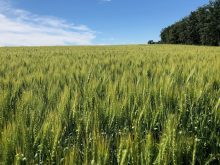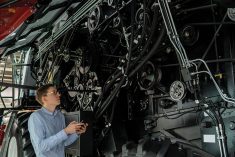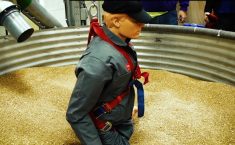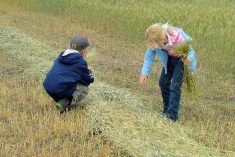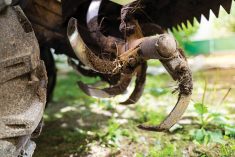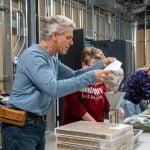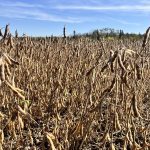Katie Keddy’s approach to teaching her two sons about safety on the farm is simple: normalize it.
“We believe in teaching them lessons so that they grow up with safety as a culture on the farm instead of learning it as adults,” Keddy explains.
Keddy and her husband, Philip, are second-generation farmers growing sweet potatoes and strawberry nursery plants with her in-laws at Lakeville, N.S. Being both a parent and involved with the farm, Keddy says she recognized early on the significance of making safety a regular part of conversations and way of thinking.
Read Also
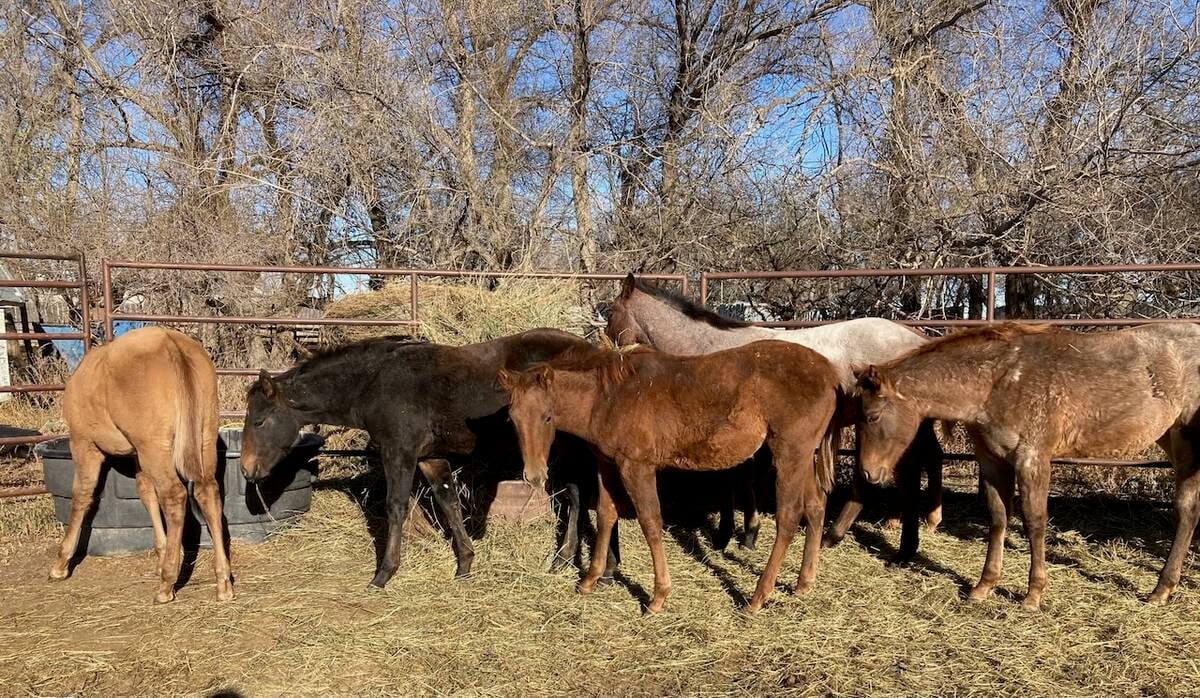
Fall clean-up and bringing animals home at the Eppich ranch
Winter is approaching which meant emoving old fence rows and bringing livestock home before the cold and the snow at the Eppich family ranch.
“Through the busyness of business, especially with farming, safety can be one of the things that falls by the wayside pretty easily if it’s not made a priority,” says Keddy, who is currently president of Farm Safety Nova Scotia.
“I wanted to ensure that didn’t happen because learning about safety as an adult requires more of a conscious effort when you haven’t grown up with it, versus it just being instilled from a young age.”
A unique aspect of agriculture is that farms and ranches are not just worksites but places where people also live. While other industries see victims of occupational injuries almost exclusively in the 18-65 age range, children account for a significant number of injuries in agriculture. According to the latest findings of the Canadian Agricultural Injury Reporting, between 2011 and 2020, there were 58 fatal agriculture-related injuries among those aged 0-14.
“I’ve always made sure to have very black-and-white conversations with my kids about safety. If something could result in death, then we are very direct about it and very clear about the risks because there is so little room for error,” Keddy says. “A single moment of inattention could mean the worst possible outcome.”
When it comes to safety, everyone has a role to play. That’s why one of the main lessons that Keddy and her husband have taught their sons — now ages nine and 11 — is that farm safety is everyone’s responsibility. And that includes them.
“We have always taught our kids that they have as much responsibility to look out for other people on the farm as other people have to look out for them, and it is all of our jobs to look out for one another,” Keddy explains, adding that prioritizing safety also plays a big part in attracting and retaining employees.
Being a parent and having a farm are both no easy feats. So, it’s no surprise that when asked if there is a balancing act that comes with parenting and farm work, Keddy can’t help but laugh.
“The entire lifestyle is a balancing act,” she says.

Farm kids tend to grow up fast, says Keddy, and certain expectations are often put on them, whether intentional or not, because of what they grow up around and experience.
“But even still, it is our responsibility as parents to not put them in an environment that could be unsafe and to give them the tools and knowledge necessary to keep them safe,” she explains. “While you’re trying to work, while you’re trying to run a business, you’re also trying to teach the kids the skills needed to be safe every day on the farm. And that definitely does take some careful and conscious balancing.”
One of the outlets that Keddy has used to help balance different priorities has been the Maritime Ag Women’s Network. Keddy co-founded the Facebook group with her friend Amy VanderHeide nearly 10 years ago after they attended the Atlantic Farm Women’s Conference and wanted to stay connected with the women they met there.
“We realized we were all going back to our farms and it is isolating living on a farm, so when you find those connections, it’s really meaningful,” Keddy says. “There is a need for connection, for information, and advice — be it with business, kids, or safety.”
The need for such a group became clear as its membership grew steadily, reaching over 1,000 members.
As Keddy notes, it’s no secret agriculture is rooted in old traditions. And while much progress has been made, many of the traditional expectations of women’s role in agriculture still exist. The Facebook group, she says, has helped highlight the unique experiences of farm women.
“Safety is a prime example of something that falls to women as the traditional caregivers and they are the ones most often who are balancing the kids with the farm work. For me, I did have the interest and passion for safety, but that’s not the case for everyone and safety often becomes a woman’s responsibility regardless of their interest in it,” Keddy says. “It’s an immense amount of pressure, and when you’re working stressed is when accidents happen and things get missed.”
While individual experiences will differ depending on location and commodity, Keddy points out that women in agriculture share many similar barriers, challenges and stressors.
“The Facebook group has helped a lot of women to realize they are not alone and that there are other people in the same situation as them. And that can really make a world of a difference to someone,” she says.
There’s no question that raising kids on a farm can bring many stressors and unknowns. Despite the challenges, it’s a lifestyle Keddy says she would never change. But she notes that the lifestyle comes with a responsibility she and her husband share to instill safety in the next generation.
“The bottom line is that we want them to grow up knowing that safety really has to be your No. 1 priority,” Keddy says. “Because without it, you may not have a farm.”
— Article by Erin Kelly for CASA.




